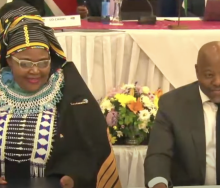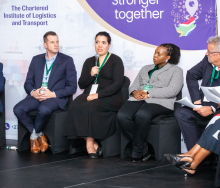Johannesburg mayor Kabelo Gwamanda is again finding himself in the hot seat over spending R6 515 314 per year on his security and blue-light convoy detail while not doing anything to stop a R230 prepaid electricity surcharge intended to fund much-needed infrastructural upgrades.
He maintains that the surcharge, comprising a flat fee of R200 excluding VAT, was decided on as far back as 2018 but was never implemented because of Covid-19 and the economic impact of various stages of the lockdown.
But the Organisation Undoing Tax Abuse (Outa) claims that a snap survey has revealed that 70% of respondents were unaware that the City of Johannesburg (CoJ) intended to proceed with the implementation of the surcharge.
More importantly, says Outa CEO Wayne Duvenage, in addition to an incoming electricity tariff increase of 12.7%, it’s going to hit poor people hard.
“In this day and age with the type of tariffs coming through, people cannot afford it. Property values, water, electricity and refuse removal keep going up above inflation over time.”
But the CoJ claims that post-paid consumers already have infrastructure-related charges built into their monthly billing.
Gwamanda said: “We do not charge all the fees we needed to since 2018.
“We limited it to post-paid customers. Due to the strain (on the city’s fiscus), the CoJ had to include the other 50% of customers that are on prepaid.”
Duvenage mentioned that there were a couple of issues to consider, such as a 30% electricity grant for indigent people, numbering about 30 000 consumers, that has been paid by national government to the CoJ but which is not passed on and deducted from prepaid expenses.
Duvenage furthermore stressed that about 30% of potential revenue from electricity usage and water consumption is lost due to illegal connections and burst reticulation infrastructure, a claim that has been confirmed by Enoch Murero, CoJ’s MMC for Finance.
He said the council was not dealing with these issues, and although Outa had approached Gwamanda’s office to intervene, “they keep on shutting us out.
“The city is run inefficiently and they continuously pass on costs through massive increases to residents.”
Neglected infrastructure reportedly bleeds R3.4 billion of revenue potential away from the city’s coffers, yet R342 million is spent on bulk services, such as the mayor’s security commuter detail.
Gwamanda said this was not the case. He maintains that it is the same security personnel he inherited from previous councils.
“There have been no additions of any staff or vehicles.”
He said he only had two bodyguards and two drivers.
However, several independent investigations have revealed that Gwamanda has been provided with 10 bodyguards from the Johannesburg Metropolitan Police Department (JMPD), with five bodyguards per shift.
In addition to the bodyguards, he has been allocated eight luxury vehicles from the fleet of the Johannesburg Metropolitan Police Department, comprising BMWs, Volkswagens, Toyotas and a Lexus.
The total cost for Gwamanda's VIP protection, including the 10 bodyguards and eight vehicles, is estimated to be over R6.5m per year.
“It’s become more expensive to pay your rates, taxes, water and sewage costs than paying off a bond,” Duvenage said.
He added that as a result people were moving away from the city to live in cheaper areas.
Gwamanda maintains that cost impacts remain a consistent consideration of the CoJ.













